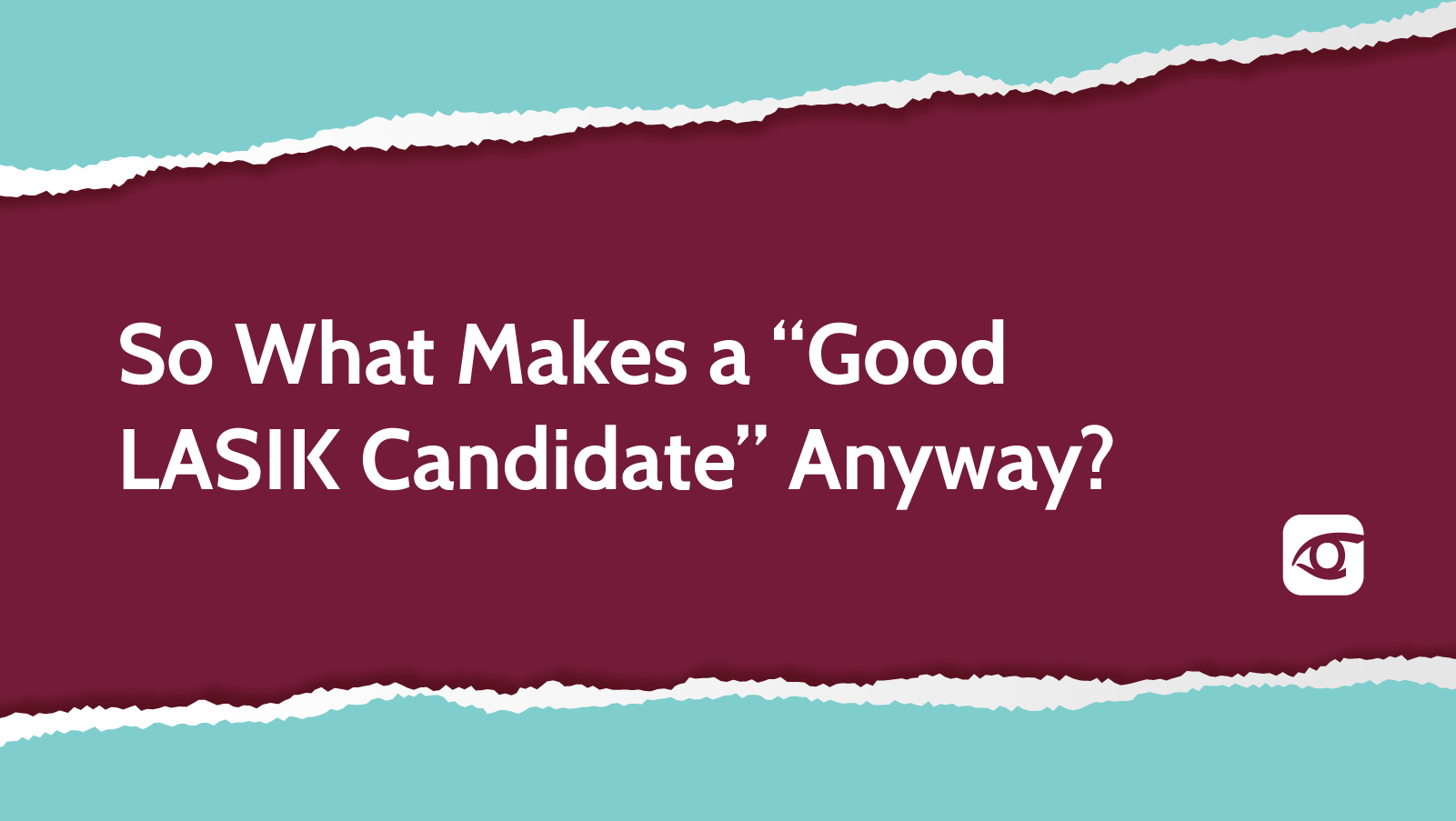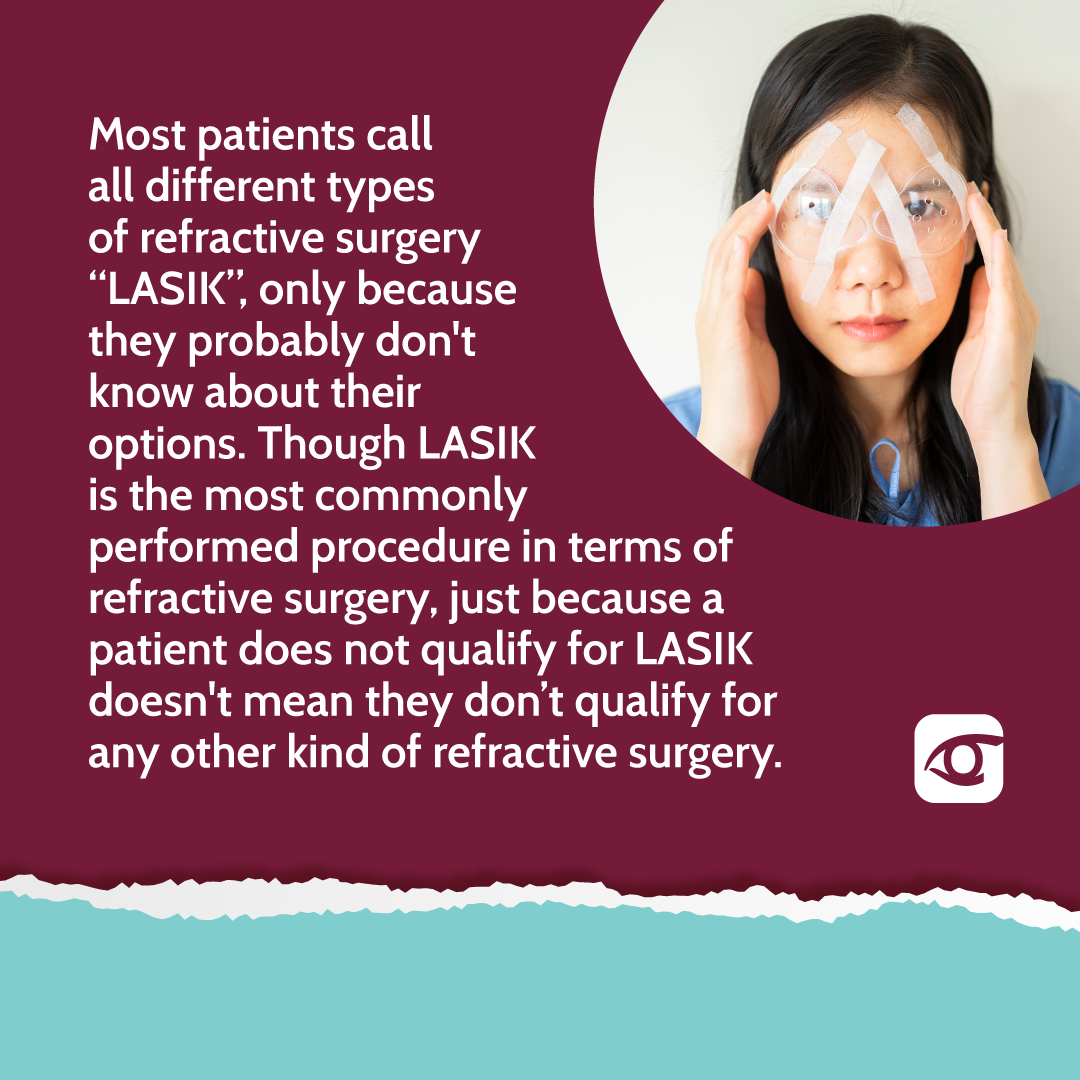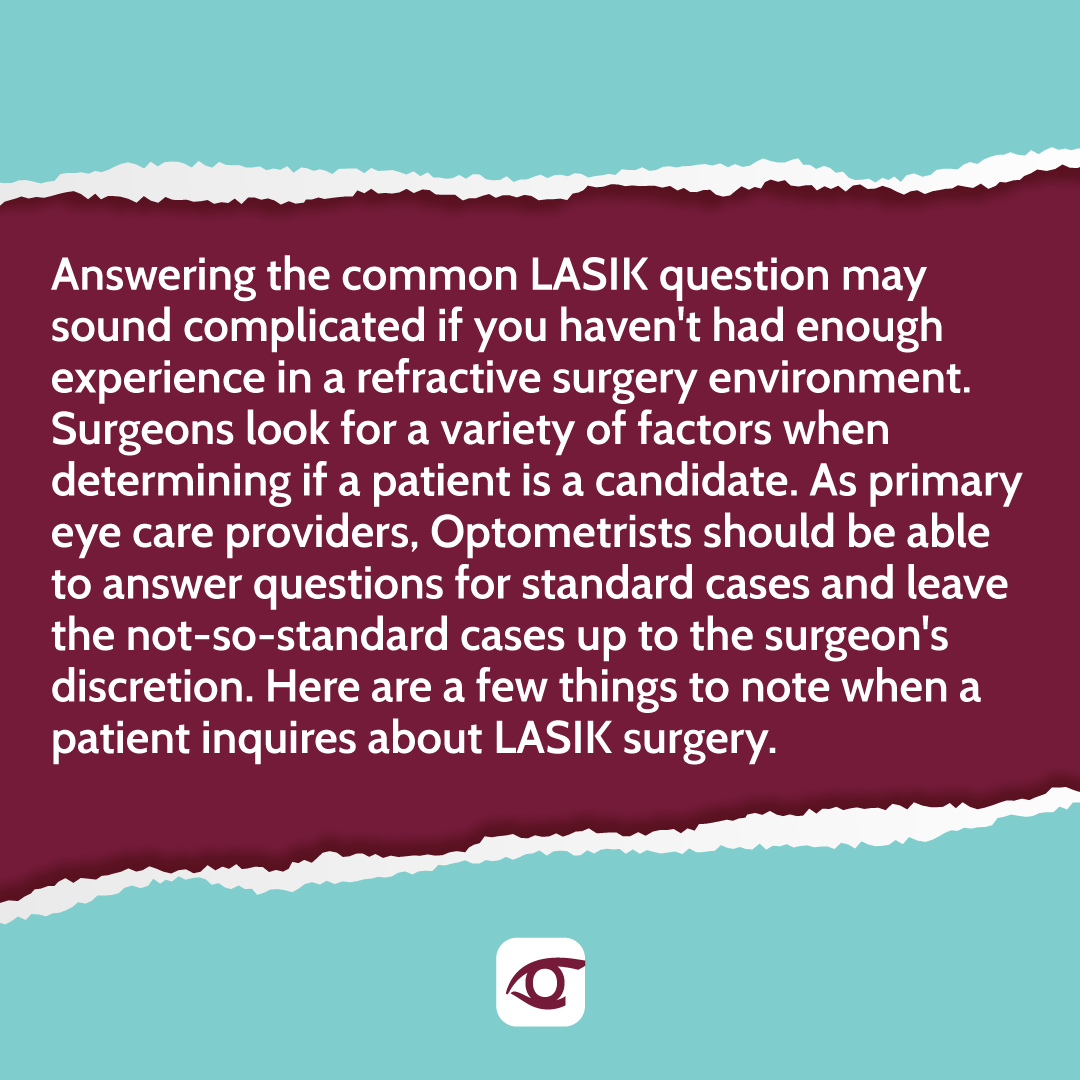
 You may have seen a patient a handful of times before, but at some point, they’ll probably hit you with the question: “Am I a good candidate for LASIK?”
You may have seen a patient a handful of times before, but at some point, they’ll probably hit you with the question: “Am I a good candidate for LASIK?”
Most patients call all different types of refractive surgery “LASIK”, only because they probably don't know about their options. Though LASIK is the most commonly performed procedure in terms of refractive surgery, just because a patient does not qualify for LASIK doesn't mean they don’t qualify for any other kind of refractive surgery.
Answering the common LASIK question may sound complicated if you haven't had enough experience in a refractive surgery environment. Surgeons look for a variety of factors when determining if a patient is a candidate. As primary eye care providers, Optometrists should be able to answer questions for standard cases and leave the not-so-standard cases up to the surgeon's discretion.
Here are a few things to note when a patient inquires about LASIK surgery:
Age: The FDA has cleared LASIK and PRK to be done on patients over the age of 18 years old. Though it is legal to do so, most doctors will wait until later on to recommend and perform the procedures. Most patients are still in the development stage at this point and their prescriptions are likely not yet stabilized. If a patient inquires around age 22 and up, I usually look at the prescriptions from the last three previous exams. If the prescription has been relatively stable, it should be OK to proceed with surgery. If the patient’s prescription progresses every year, then it’s a good idea to monitor the patient every year until the prescription stabilizes. Most patients like to hear this information, as they look forward to next year’s eye exam to ask you if their prescription is stable enough yet.

History: Take a very thorough patient history and emphasize systemic health. Ask patients about any collagen-vascular or autoimmune diseases. Patients usually don't bring this up because they think that it may have nothing to do with the eyes. Ask for any flare-ups in these conditions. Also, patients who may be pregnant or nursing cannot undergo the procedure. Additionally, don’t forget to ask about medications and allergies. Some systemic medications such as sumatriptan used for migraines can also affect vision. Therefore, make sure you make a good list of medications and conditions that you can forward to your co-managing surgeon when making the referral.
The ocular surface: Laser surgery is harsh on the eye. It can cause ocular surface disease and dry eye due to the damage done to the corneal nerves. Having dry eyes to begin with can make things a lot more complicated. Discuss dry eye and ocular surface disease treatment and management beforehand and make sure everything is stabilized before recommending any kind of ocular surgery. If these problems are not stable, symptoms will multiply after surgery.
Corneal thickness: This is one of the main determining factors when deciding if a patient is a good candidate for LASIK. In fact, it’s one of the first measurements that surgeons have their technicians perform in order to predict if the patient will be a good candidate for refractive surgery or not. If you have access to a pachymeter in the office, it can be helpful in giving a patient an idea about if they will qualify. Most surgeons prefer a LASIK patient to have a corneal thickness of at least 500 microns in order to qualify for surgery. Be sure to discuss this with your comanaging surgeon to make sure you are on the same page. If you don’t have a pachymeter, don’t sweat it! The surgeon’s office will take these measurements and discuss alternatives if needed.
Eye health: Dig deep into old records if you have to. If the patient has a lot of astigmatism, determine if there is an underlying condition such as Keratoconus or Pellucid Marginal Degeneration. Provide a detailed ocular history (as far back as you can go based on your notes). If the patient had a previous eye doctor, try to see if you can compare records. Digging into detail, in the beginning, will prevent having to do damage control later.

Though there are so many other nuances that can determine if a patient is a good candidate for LASIK, these simple tips will help guide you in your conversation with the patient. Make sure to understand why the patient wants to undergo LASIK rather than continue with conventional glasses and contact lenses. Helping the patient understand attainable goals and expectations beforehand and your LASIK co-management post-op appointments will become a breeze!
~ Dr. Amadian
